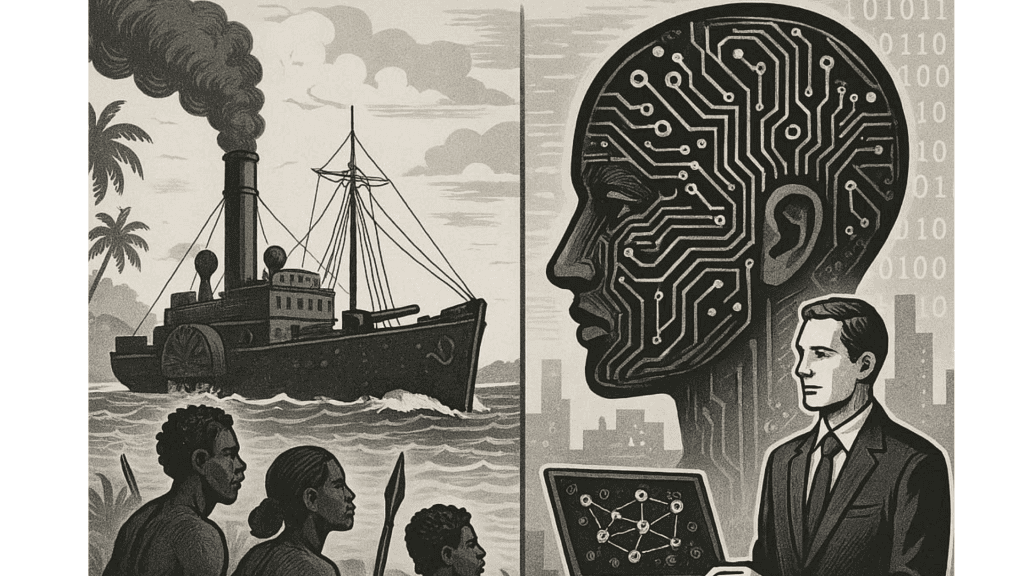
In the 21st century, in this technological age where we wake up to new developments every
day, who would believe that the colonial system still persists? Yes, you heard that right. We’re
in the 21st century, and we’re still talking about a colonial order. We’re talking about European
countries literally coming to the African continent and forcing people to work, enslaving them
not with iron chains but with invisible chains, and interfering in their political, social, and
economic decisions. Sounds strange, right?
With the advent of the Industrial Revolution in the 18th century, the need for raw materials
and manpower increased, and therefore, colonial activities accelerated. During this period,
which we might call the classical colonial era, natural resources were important as raw
materials, while today, artificial resources, “data,” have become more important. Alongside
this change, China was added to the list of exploiting countries, thus revealing the differences
in the transition from the classical colonial order to the algorithmic colonial order. Despite
these differences, there was one thing that remained the same in these two colonial orders: the
exploited countries, the Global South. It is known that during the classical colonial era,
European countries carried out colonial activities in Africa for many years. Today, in the era
of algorithmic colonialism, the situation is no different. The governments of these countries,
particularly the UK, EU countries, and the USA, as well as the companies located in these
countries, are carrying out colonial activities on the continent. In addition to these countries
and their companies, the digital activities of the Chinese government and its companies,
which have made significant strides toward becoming a global power in the 21st century, are
also acts of colonialism. Today, especially the large technology companies based in the USA
and China (Chinese companies: Baidu, Alibaba, Tencent, and Xiaomi; USA companies Meta,
Apple, Amazon, Microsoft, Netflix, and Alphabet’s Google) are not much different from the
East India Company, which openly disclosed its colonial activities.
When we look at all of this, we see that nothing has changed, even centuries later. While the
world order is changing, technology and humanity are advancing, the continued existence of
colonialism is a major question mark in human history.